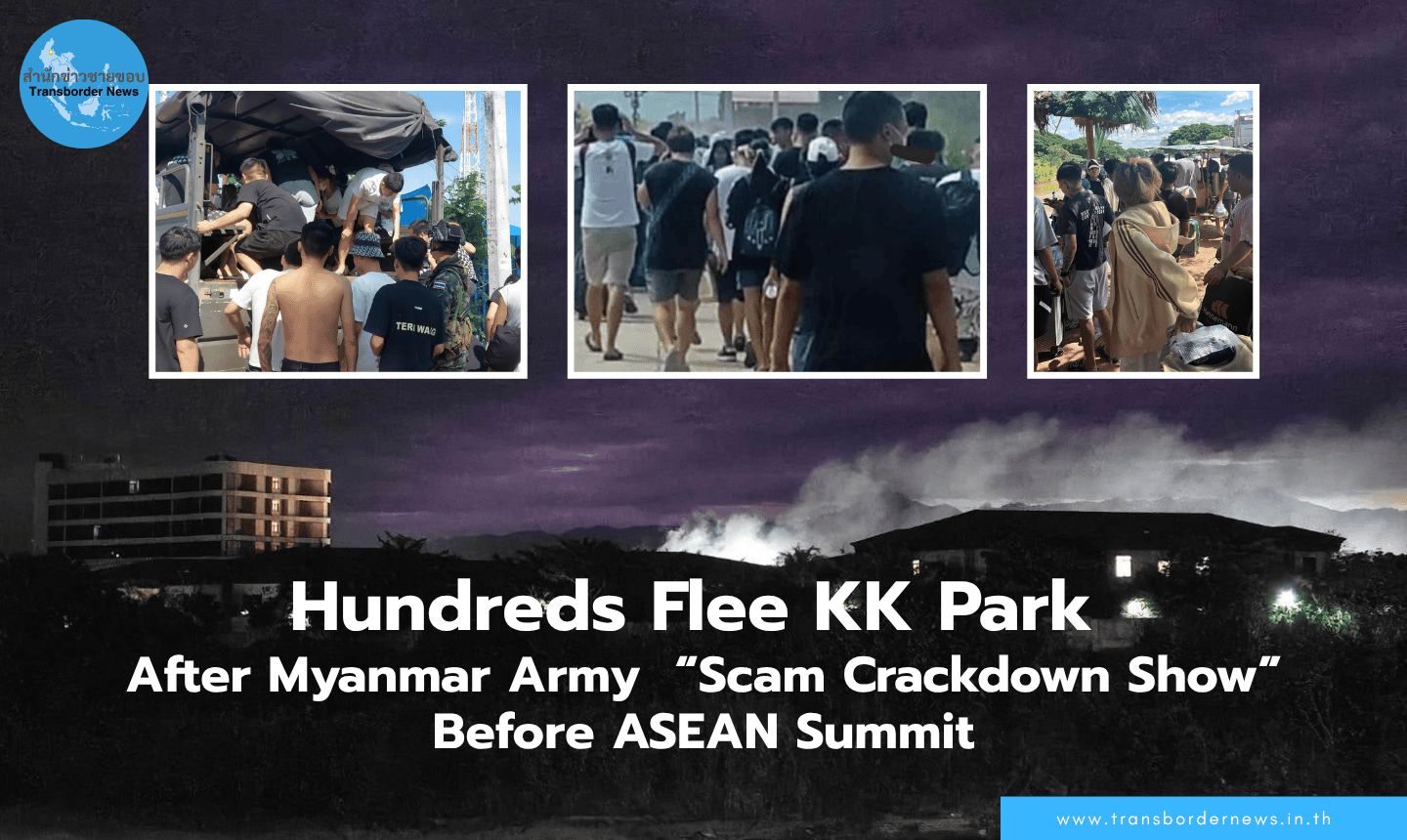Karen Refugee Committee calls it a turning point while National Human Rights Commission praises move as protecting dignity
On August 28, 2025, Saw Hayso, a member of the Karen Refugee Committee (KRC), spoke to Transborder News about the current situation in refugee camps (temporary shelters) following the withdrawal of U.S. food and health aid. He noted that while some vulnerable groups will still receive assistance until the end of the year, the majority of camp residents—classified as “standard”—are no longer receiving food rations.
“Our concern now is that food will run short. We are only able to allocate limited amounts of rice to those serving in essential roles such as health workers, teachers, committee members, and guards—just five kilograms per month. This will last perhaps two more months, until November. For the wider refugee population, we cannot help,” said Hayso. Health services previously supported by the International Rescue Committee (IRC), he added, have now been transferred to district hospitals.
Asked about the most pressing concern, he replied: “Hunger is the most urgent issue. If people go hungry, they will have no choice but to seek work outside. The real question is how we can maintain stability in the camps.”
Hayso welcomed the Thai Cabinet’s recent decision to allow refugees to legally work outside the camps, calling it a long-term solution: “Many young people have been born and raised here. They have vocational training, many speak English, and they are ready to contribute to Thailand’s economy, particularly in agriculture and other labor sectors.”
He stressed that income earned by refugees outside would also be sent back to support families still inside the camps. However, he raised concerns about the lack of clarity in the government’s plan: “We don’t know yet how the process will work. How can we protect people from labor exploitation and human trafficking? If a family sends members to work, will others be allowed to accompany them, or only workers? What about the elderly and children left behind?”
The KRC has already convened to discuss the Cabinet’s resolution, weighing both positive and negative impacts. “This is clearly a turning point and a positive development. But we need clear operational guidelines—how the camps will be managed if large numbers leave for work, how education and youth support will be handled if parents are outside. These are issues we must address,” Hayso explained.
He added that preparing refugees for life outside will be important: “Many have never been outside. Before leaving for work in towns or cities, they will need orientation on the workplace context, culture, and laws. If there is training in advance, adaptation will not be difficult.”
Meanwhile, Wasan Paileeklee, a commissioner at the National Human Rights Commission of Thailand (NHRC), welcomed the Cabinet’s August 26 decision, which approved new regulations from the Ministry of Interior and Ministry of Labour. The measures grant refugees from Myanmar living in nine temporary shelters permission to legally leave camps and take up work in Thailand.
“The NHRC thanks the Cabinet for this historic step. For decades, refugees have been confined in camps without a future, some for as long as 40 years, often forced to risk exploitation by sneaking out for work. Now, with U.S. aid cuts and declining international support, this measure is both timely and systematic. It responds to human rights and human dignity,” Wasan said.
He added that the decision benefits not only refugees but also Thailand: “It strengthens the economy, reduces illegal labor, lessens the long-term burden of state support, and addresses migrant labor shortages in a structured way. Most importantly, it gives refugees the right to work and to live with dignity.”
This is a translation of original Thai article, https://transbordernews.in.th/home/?p=43663





